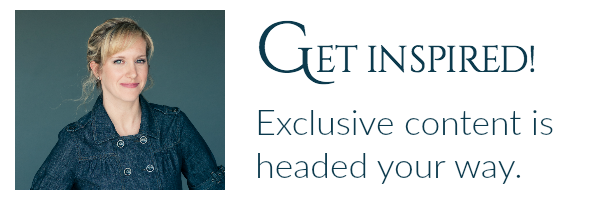by Kelli Stuart | Faith, Life, Writing

Humans are amphibians – half spirit and half animal.
As spirits they belong to the eternal world, but as animals they inhabit time. This means that while their spirit can be directed to an eternal object, their bodies, passions and imaginations are in continual change, for to be in time means to change. Their nearest approach to constancy, therefore, is undulation – the repeated return to a level from which they repeatedly fall back, a series of troughs and peaks.
…Now it may surprise you to learn that in His (God’s) efforts to get permanent possession of a soul, He relies on the troughs even more than on the peaks;some of His special favorites have gone through longer and deeper troughs than anyone else.
The reason is this. To us (the demons) a human is primarily food; our aim is the absorption of its will into ours, the increase of our own area of selfhood at its expense. But the obedience that the Enemy (God) demands of men is quite a different thing.
One must face the fact that all the talk about His love for men, and His service being perfect freedom is not (as one would gladly believe) mere propaganda, but an appalling truth. He really does want to fill the universe with a lot of loathsome little replicas of Himself – creatures whose life, on its miniature scale, will be qualitatively like His own, not because He has absorbed them but because their wills freely conform to His.”
C.S. Lewis – The Screwtape Letters (emphasis mine)
Life can throw us curveballs when we least expect it. Sometimes we barely manage to push ourselves off our knees before we’re brought low again. We are undulating through life in the ever constant shift between highs and lows, goods and bads, troughs and peaks.
This is where our passions, our imaginations, and our eternal, spiritually connected souls take shape.
I’ve spent the morning digging through The Screwtape Letters once again. When life feels curvy, I find solace in books. My anxious heart calms in the rhythm of the written word. There is equal comfort to be found in music, which Lewis describes in The Screwtape Letters (from a demon’s point of view) as “a detestable art…a meaningless acceleration in the rhythm of celestial experience.”
“Something like it occurs in heaven,” he writes. Then he describes laughter as producing a similar effect on the human soul.
I don’t know where you are in life today, whether you’re down on your knees, trying to dust off yet another disappointment, or recoiling from the aftershocks of unexpected news, but I offer you this encouragement:
Look for comfort in beautifully penned words, and seek the peace of the scriptures.
Listen to music that pulls you into that realm of celestial experience.
And, if at all possible (and it’s always possible), find a way to laugh. Look for fun wherever you might find it, and for however brief a time it may appear, for as Lewis writes, “Fun is closely related to Joy – a sort of emotional froth arising from the play instinct.”
This is my prayer for you today.
by Kelli Stuart | Creativity, Dreaming, Life, Motherhood
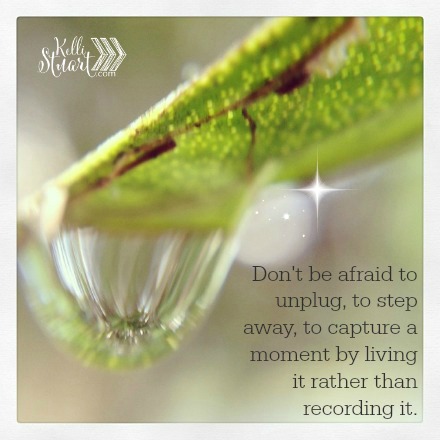
“Why didn’t you take the picture?”
“Sometimes I don’t. If I like a moment – I mean me, personally – I don’t like to have the distraction of the camera. I just want to stay in it.”
“Stay in it?”
“Yeah. Right there. Right here.“
Excerpt of dialogue from The Secret Life of Walter Mitty
I watched this film last night, and I was struck by the simple beauty of the message. Don’t let life pass you by. Grab hold, live full, go big, and stay in it. Don’t miss the beauty of the moment lost in day dreams, or mired down in the need to document each moment in time.
Two main characters captured this film, though we only saw one of them for a few brief moments at the end. Walter Mitty was a man who let the difficult moments of the past define his present. He quit living when tragedy struck, and he pushed aside his dreams and passions for a life of practicality.
The consequences of this decision left him with nothing but his imagination, and he lost himself in daydreams, longing for a life he might have known if he hadn’t let it slip through his fingers.
The other character, Sean O’Connell, was a famous photographer, a man who grabbed life by the horns. He had no address, no phone, nothing but his camera, and his vision of the world around him. They were unlikely friends, a relationship having been forged through letters and photographs, until Walter needed to track Sean down to find a particular photo, and he finally began living life. Really living life.
When he finally caught up to Sean on a mountaintop in the Himalayas, he watched as the man let the beauty of nature sink in. Though Sean’s camera was set up and ready to capture an elusive moment in nature, when it finally came around, Walter wanted to know why he didn’t snap the picture.
“Sometimes if I like a moment…I don’t like to have the distraction of the camera,” Sean said. “I just want to stay in it.”
I love this line. In fact, I really liked this movie. I loved the message, and I found myself chewing on it for a bit as I drifted off to sleep. I think that everyone has the potential to fall into the trap of Walter Mitty. We all let life swing past us as we give in to responsibility, to laziness, to fear, or simple apathy.
We could all use a little more “Sean O’Connell,” though. We could all stand to grab life by the horns just a little more. To live fully and bravely in this world that threatens to pass us by.
The real trick is recognizing the moments when we simply need to stay in it. Without the distraction of a camera, of social media, of the pressure to document and record. We just need to stay right there.
Right here.
As kids finish up school and you head into summer, I encourage you to make every effort to stay in the moment. Don’t be afraid to unplug, to step away, to capture a moment by living it rather than recording it.
I’m issuing myself this very challenge, and maybe together we can push each other forward to a life more fulfilled, more purposeful, and better captured than we thought possible without the benefit of a device in hand.
Isn’t that a novel thought?
by Kelli Stuart | Faith, Life, Motherhood, Raising Children
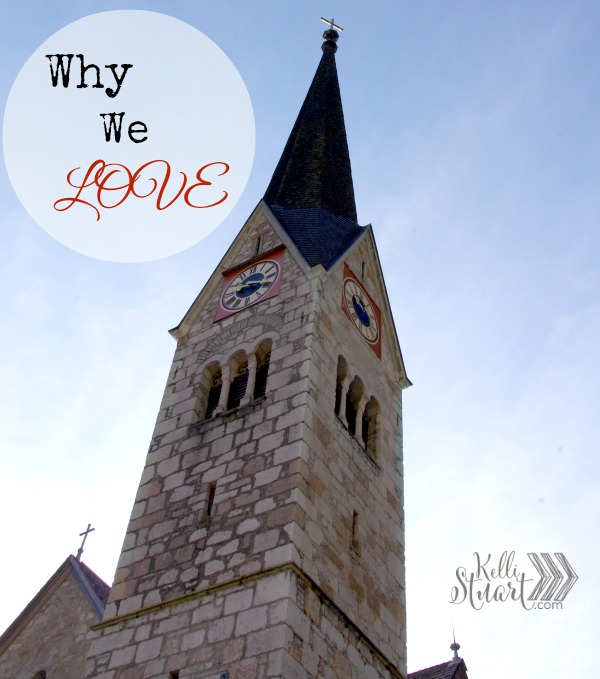
He proudly stood on the third riser, second from the end, and scanned the audience. Our eyes met and he grinned, his tiny mouth splitting his freckled face with pure joy and great pride. I pulled out the video camera, flicked open the screen, and as he waved proudly, I recorded the moment for posterity.
And to remind myself that these fleeting moments are worthy to be treasured.
The graduating kindergarten class regaled us with song, clapping and singing their way through the alphabet, the vowels, and the numbers. They proudly showed off all they learned in their first year of school, and I glanced around at the parents surrounding me. We wore matching expressions of pride, of joy, of deep love, and of the pain that comes with knowing a season has come to an end.
Between each song, his little fingers went to his mouth, wiggling furiously at a loose tooth – the first loose tooth. Soon it will fall out, followed by several more, and those tiny baby teeth will be replaced by the bigger teeth that will stay with him (hopefully!) the rest of his life.
Stages passing by as I try not to blink my eyes.
I lay in bed last night, long after the house grew silent, and I thought on this gloriously painful beautiful thing called parenthood. I remembered a few years ago talking to a neighbor whose dog passed away unexpectedly. She loved that dog dearly, and she sobbed as she discussed the final moments with her precious pooch.
A week later, she came home with a new dog – a puppy that looked exactly like his predecessor. I watched as she fawned over the new animal who had clearly become a balm to her wounded heart, and I shook my head in wonder.
“Why would she get another one?” I thought. “Why would she open herself up to that heartache again?”
Dogs get old fast and they die, and it’s sad. Why do we do that to ourselves? Why do we open ourselves up to heartache and grief?
As my mind drifted over that memory, I found myself weaving the narrative back to my children. Love is so mysterious and strange. We allow our hearts to be tangled and enmeshed, because the pure, deep joy that comes from love far outweighs the knowledge that love also leads to loss.
My neighbor’s dogs brought her deep joy. She loved them fiercely. She could have chosen, after the first dog died, to not get another. She certainly would have saved her heart from future grief.
She also would have denied herself the mystery of loving in the present.
We love because of the mysterious connection that comes with that love. When I married my husband, I chose to give him my heart, and I did so without fully understanding the ramifications. We’ve chosen to fight for our love, which means we choose, even in the tough times, not to tear away from one another.
But even if we fight to the very end, and we continue to walk this path as one flesh, someday we are guaranteed to be separated on this earth. We will face the heartache of loss.
We give birth to children, and we discover a love so deep and so profound that we cannot wrap our minds around it all, and yet we know that with each passing year, each milestone reached, we are walking toward the grief of separation. We will leave them in a college dorm. We will give their hands in marriage. We will say goodbye to the moment that is right now, and we’ll trade it in for a new normal.
A different kind of love – the kind that comes with separation and distance, and of a life filled with more silence than bustle, with more memories than present experiences.
The hope of any parent is that we won’t be separated by the death of a child, but for some that is a devastating grief that must be faced. And it hurts so badly because the love was so real.
So why do we love? Why do we set ourselves up for this known heartache?
My faith must dictate how I answer this question.
We love because we were created by the One who Loves. We love knowing that love brings both joy and heartache, because the One who created us, His most glorious of creations, faced the same joy and heartache. He faced the beauty and loss of Love first. He designed the mystery of it all. He faced the beauty, the separation, the pain, and the horror of death on our behalf.
But that’s not the end of the story, and this is why I keep opening myself to love. I know, and believe, that this life isn’t all that is promised. I know that the heartache and the grief of separation are necessary, but only for a time.
I love because He made me to love.
Because He Loved me first.
Mysterious. Beautiful. Joyful. Painful.
Love.
by Kelli Stuart | Faith, Life, Motherhood, Raising Children

Last Sunday, our oldest conquered a fear. He stood up on a stage with his guitar in hand, and he sang into a microphone. His voice was pure, if a little shaky. He was obviously nervous as he never cracked a smile in the three minutes he stood in front, but he did it. He sang his first solo.
I couldn’t have been more proud if I tried.
After he finished singing his song (a song that he wrote himself), he received a lot of praise, and he deserved the praise. He did a great job! Of course, as any good parents would do, we captured the momentous occasion on video…from two different angles. Later that day, I posted a photo of my handsome boy on stage on Facebook, and I shared our joy in his bravery. Naturally, friends and family wanted to see video.
I asked Sloan if he would mind me sharing the video with a few people. He immediately agreed, and I went about downloading the video, but deep in my heart, I had a nagging feeling that this was not a video that needed to be shared with the online world. I tried to ignore the feeling, because the proud Mama in me wanted everyone to see my boy’s amazing accomplishment.
But I just couldn’t shake the feeling that this video needed to remain more private, shared only with grandparents and a couple of close friends who’ve known Sloan since he was a baby.
Our kids are growing up in the social media age. More than any other generation before them, these children have to navigate the constant pressure and need for attention. With reality shows, the Disney Channel, and the internet all pulling for their attention, today’s children are under a constant quest for fame.
They’re told that fame is right there within grasp. All they have to do is put themselves out there…all the time…and they could be the next internet sensation.
I don’t want this for my children. I don’t want fame for them, because I don’t think we were designed for fame. Certainly children in their formative years do not need to be worried about garnering more attention for themselves.
It’s no secret that I enjoy the perks that social media has to offer. I love Facebook and blogs, Instagram and Twitter. I love the connection these tools offer with people around the world. I love the good that is coming from these social sharing sites.
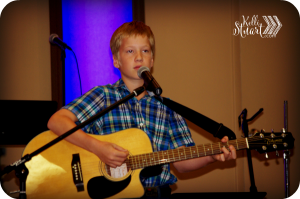 But I was 30 years old before I ever had a Facebook account. I navigated my teenage and college years in relative obscurity, and thank heavens for it because I can only imagine the number of ridiculous images I could have posted of myself as a youth.
But I was 30 years old before I ever had a Facebook account. I navigated my teenage and college years in relative obscurity, and thank heavens for it because I can only imagine the number of ridiculous images I could have posted of myself as a youth.
I don’t want my children to live their lives according to the number of “Likes” they get on a post. I don’t want them beholden to statistics, and I don’t want them to measure their gifts and talents by the amount of praise they receive online. Even I have to monitor my heart, and my reasons behind posting online. I’ve pulled back a lot in the last few years, mostly because I knew we were approaching the age when the kids would take notice.
I don’t want my boys to think that every major accomplishment can only be celebrated if they receive cyber high fives from a bunch of strangers and acquaintances.
I don’t want my daughter to post duck face selfies online every time she feels cute, then measure her physical appearance by the attention she did, or did not, receive.
So I chose not to post the video, for no other reason than I wanted Sloan to know that his accomplishment was momentous because he chose to offer a gift up to the Lord for His glory, not because his musical accomplishment would give him five minutes of internet fame.
Navigating the online world of social media is difficult enough as an adult. It will still be some time before my children are allowed to tiptoe into these waters. My job as a mother in the internet age is to prepare my children not only to face the world around them, but also the world behind the screen.
This is serious work, indeed.
How do you as parents handle the world of social media with your children? This question is aimed particularly at you parents who are a step ahead of me in this process. How are you helping your child navigate these waters of the online world? I’m open to tips and encouragement!
by Kelli Stuart | Adoption, Elsewhere, Life, Motherhood, Raising Children, Writing
I’m writing at both Extraordinary Mommy and Mercy Found Ministries this week. I’d love to have you read along!
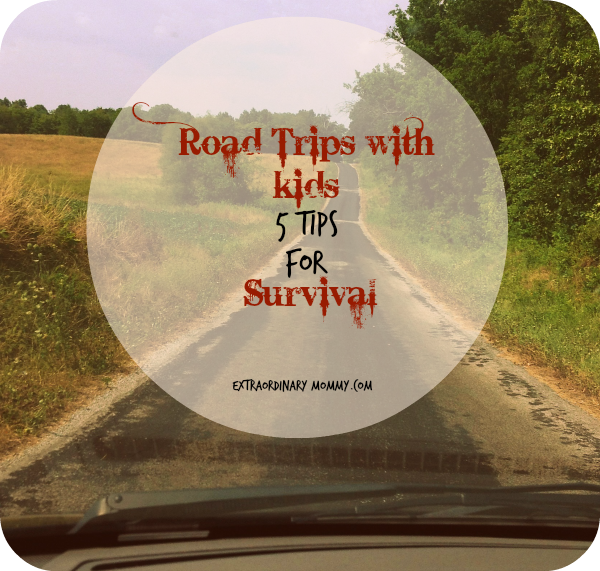
When my oldest was two years old, my husband and I planned a road trip to see family. I packed the car full of all measure of educational toys, books, crayons and paper, and other fun activities for the road. A friend had given me a portable DVD player, which I packed, but I scoffed at the idea of letting my child wile the hours away watching Elmo.
“I grew up reading and sitting quietly in a car!” I boldly proclaimed. “I didn’t need to be entertained by a mini-TV, and neither will my children!”
About five hours into our exciting family road trip, I was completely and totally exhausted. As our little angel kicked his legs and cried in frustration, my husband looked at me with raised eyebrows.
“You know,” he said. “You don’t have to be a matyr for motherhood. Technology isgood.“
I sighed, popped Elmo into the DVD player, and watched in amazement as my son grew mesmerized by the sights and sounds, then fell asleep for the remainder of the trip.
We’ve since added two more children to our brood, which means that road trips are a necessity if we want to see our family who all live sixteen hours away. I’ve even made the long trek home on my own with the kids in tow, and I’ve picked up a few tricks and tips along the way.
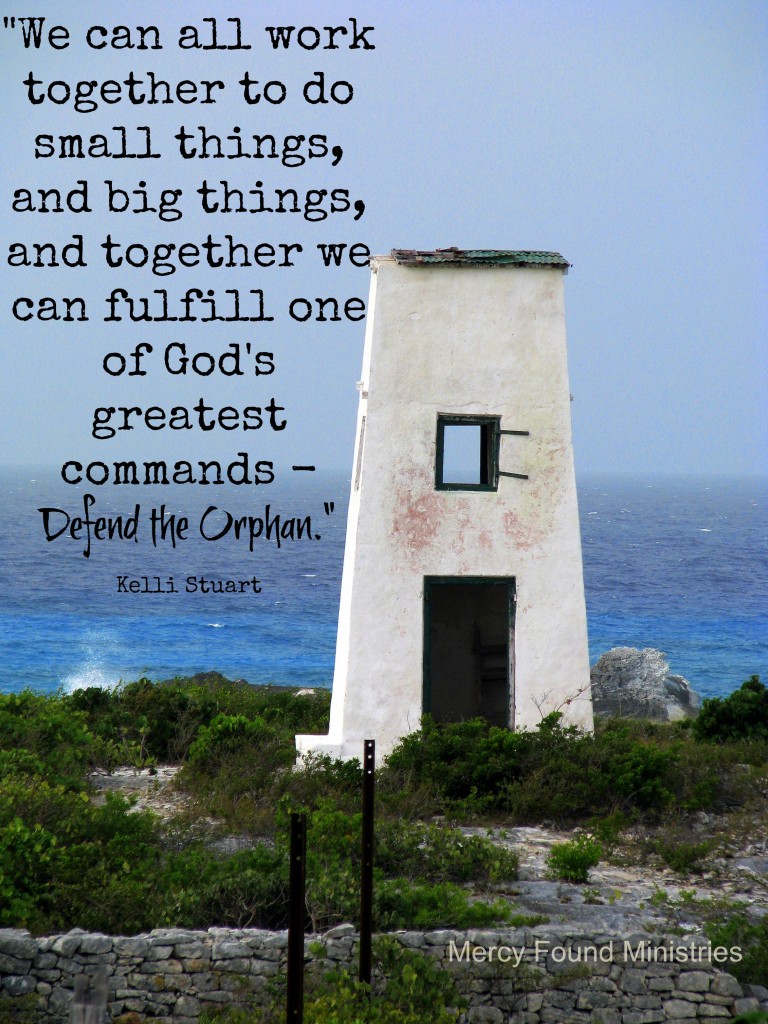
Two years ago, I sat at a table in a hotel in Tanzania with a small group of bloggers. It was our final night before departing to head home, back to our homes, our country, our lives that would all now feel a little too comfortable.
We were there on behalf of Compassion International, a team of writers meant to help raise awareness of the great work that Compassion does worldwide for children and families living in extreme poverty.
Our leader, Shaun Groves, told us the story of Everett Swanson, founder of Compassion Interntaional. Upon seeing the desperate orphan crisis in Korea during the Korean war, a missionary friend of Swanson’s asked him the simple, but poignant question – “Now that you know about it, what will you do?”
Compassion International is the living, thriving testimony of a man who could not go on as he had before.
Adoption is a unique ministry. You will see statistics floating around from time to time informing us of the fact that if every family inside the church were to adopt one child, there would, effectively, be no more orphan crisis around the world.
While it’s a nice, utopian idea, the fact is this is a useless argument. There will always be an orphan crisis, because we live in a broken world, comprised of broken people. While adoption is a beautiful ministry, it is one that is birthed out of brokenness.
Add to that the very real fact that not every family is called to adopt and raise a child in their home. This does not, however, excuse us from the responsibility to care for the fatherless.
by Kelli Stuart | Dreaming, Elsewhere, Goals, Life, Motherhood, Raising Children, Travel
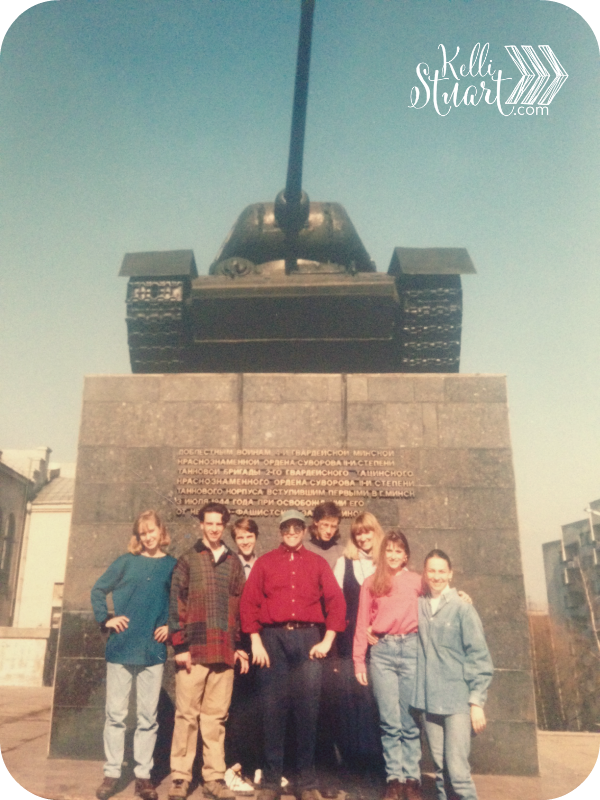
We were a rag tag group, a gaggle of teenagers, most of whom were leaving US soil for the very first time. It was 1995, and the dust was still settling from the fall of the Iron Curtain.
“Don’t get over there and be loud and obnoxious,” our leader advised us before we left. “Show them that American teenagers actually do have some self control.”
We tried to do this, and most of the time we succeeded. We avoided squealing and shouting over every new experience, although being tricked into eating cow tongue on our first night in Minsk, Belarus was just short of a cruel introduction into this strange new land.
The smells are what I remember the most. That and the cold. When we stepped off the plane onto a frigid tarmac, the sky around us was grey. For a brief moment, I felt as though we’d stepped into a black and white film as the grey pavement extended into the grey horizon in such a way that made all the land before us seem devoid of color.
Oddly enough, I felt right at home.
As we entered the concrete terminal, I listened closely to this foreign language. It was the first time I’d ever heard Russian, and the words sounded like poetry. At least that’s the way I remember it. At the time, I know I was a little shell shocked. Jet lag combined with an awe and fear of the unknown didn’t leave me much time to ponder the poetic nature of my current reality.
I just remember feeling like I knew that place.
For two weeks we toured the land, and as I remember those adventures, the landscape slowly fades into this technicolor memory. It lights up as I explore the moment that I first learned who Lenin was, and what he had done. It bleeds into the first moment I stepped into a Russian Orthodox church, and realized exactly what the word “history” means.
Suddenly 1776 no longer seemed that interesting to this All-American girl. Not when I was confronted with the stories of a land that dated back to 1067. I couldn’t even fathom the amount of story that the buildings I stepped into held.
The world changed for me on that trip. I stood in Red Square in Moscow, and I looked at St. Basils, and I had no idea how to process the world as a whole. When I walked through Lenin’s tomb, and viewed the body of a man both hated and revered depending on who you spoke with, I couldn’t wrap my mind around my smallness in this world.
All I knew was that I wanted to see and experience more of it.
Lee and I have been talking a lot, lately. Dreaming, really. We dream of exposing our children to more of the world, of opening their eyes to their smallness in this great, big land.
I’m so grateful to my parents for encouraging me to experience life to the fullest. I’m so thankful that they saw the importance of travel, and that they not only allowed me to explore this globe (usually without them), but they generally pushed it. Without their willingness to let me go and experience life through travel, I wouldn’t be who I am today.
Our kids are still young, and there are some boundaries within which we feel like we must operate as a family, but we have dreams. We dream of showing them the world, of giving them a taste of it now, while they’re young. Our biggest, most-unlikely-but-still-fun-to-discuss dream is to someday live overseas for a time. I don’t know if that will ever happen, but we do love to imagine the possibility.
And when the time comes, we’ll give them whatever nudge they need to step out and explore on their own…hopefully with a little more wisdom than I showed in my solo travels.
We’ve started the process of exposing them to the world outside the United States, and we have hopes, dreams, and loose plans to do more traveling with them in the coming years. As we do this, I pray that there will come a moment for each one of them when the Lord gives a coming home moment – a slice of time that will serve as a technicolor memory.
I can’t wait to see how they use those memories in the future.
(These thoughts have been spurred on by Tsh Oxenreider’s book, Notes from a Blue Bike. If you haven’t read it yet, I cannot recommend it enough.)
Tell me your story. Have you had the chance to expose your kids to new experiences through travel, either inside or outside the country? How have you done this, and how has it impacted your family?








